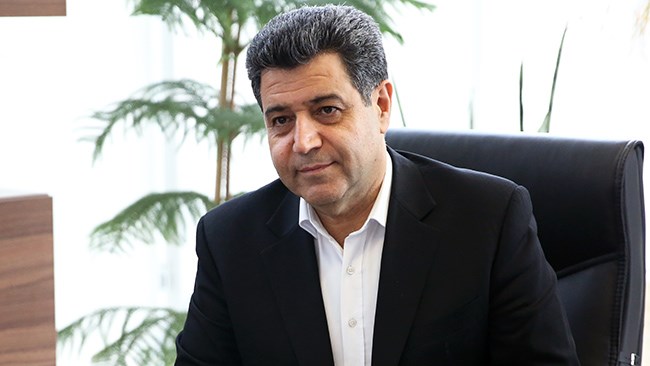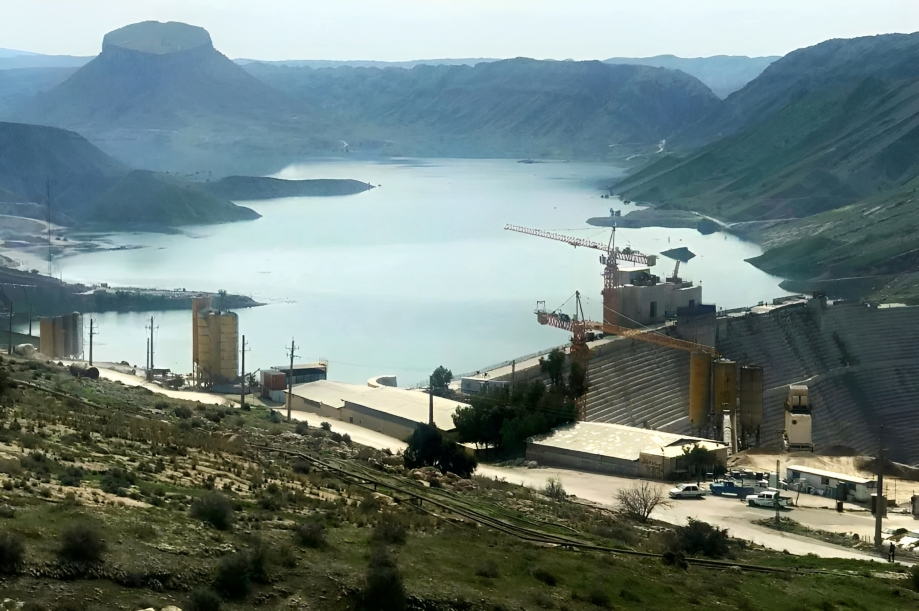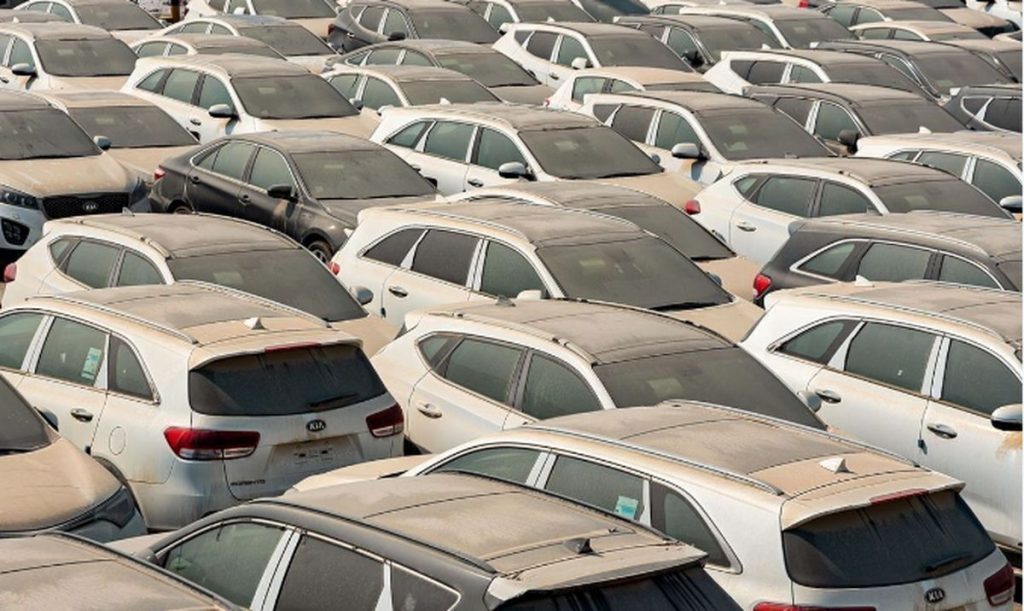
First Step Is Transparency
The editorial of Arman Melli, penned by MP Mohammad Reza Khabaz, urges that the first measure to take to fix the country’s economic problems is to create transparency and eradicate corruption.
People’s lives are indescribably miserable. When statistics show that 57% of the population suffer from malnutrition and do not receive the necessary calories per day, it shows that more than 50% of the Iranian population are suffering because of the government’s decisions. That is because such issues are wholly due to mismanagement.
The Central Bank and the Statistical Center of Iran have not released inflation statistics for some time while the government claims that the inflation rate is low. We must identify the correct solution. A cleric in the city of Qom recently said that in the near future there will no longer be any hope left among the younger generation. The main factor is poverty.
The Prophet of Islam said that when poverty enters a house, then the door is also opened for disbelief to enter. An MP recently said that 420 billion tomans of bills are printed hourly which results in inflation. The country’s income per capita has considerably dropped, though the impact of the sanctions is not to be overlooked in this regard.
If they want to save the economy, their first step must be transparency to stop corruption. In addition, having a more peaceful relationship with the world must be on the government’s agenda, in addition to crafting a coherent economic policy.
When the government’s inclination is toward the East and particularly China, then we must also study to see how this country has emerged as the second biggest economy in the world. Why are countries like South Korea, Malaysia and Singapore not studied to see which policies have proved useful in the world?
When taking office, government officials made promises to fix the country’s economic problems. But the problems are still there. The very fact that the promises are made but not fulfilled increases the sense of hopelessness among people. Furthermore, it must be noted that the economic managers appointed by the government are not competent enough to resolve the issues.
Prices Do Not Decline Because of Economic Instability
The editorial of Jahan Sanat argues that without economic stability, the prices of goods and services will not decline when there is a drop in the forex rate.
One of the main factors influencing the price of goods and services in Iran’s economy is the fluctuation in the rate of forex. In the short run, price increases are largely due to an increase in the forex rate, but, contrary to people’s expectations, when the rate of forex goes down, the cost of goods and services does not go down.
Undoubtedly, this trend is natural because the market is reflecting a positive reaction to the decline in the forex rate when there is macroeconomic stability.
If the policies of the government and the Central Bank are formulated to create stability, then the ground is prepared for creating trust among economic actors, manufacturers and consumers. Otherwise, a drop in the forex rate in the short run cannot lead to a decrease in the cost of goods and services.
In addition to a drop in the forex rate, creating confidence among economic actors regarding economic stability, managerial stability and related laws can result in the lowering of prices.
The other significant factor which prevents a drop in prices after a drop in the forex rate is the correlation among prices. That is because the market must be sure that prices will stay low so that the produced goods and purchased raw materials will be supplied at lower prices in the market.
Undoubtedly, the government and the Central Bank must offer clear and long-term prospects regarding economic stability so that economic actors can take serious steps in buying and supplying goods. Otherwise, importers who have purchased goods and raw materials at higher prices will not supply them to the market at a loss.
Therefore, economic stability is essential in order to bring prices down following a decline in the forex rate.
The Underhand Behavior of Russia Against Iran
The editorial of Etemad explains that despite Russia’s moves against Iran, the Iranian government tries to act as if Moscow is Tehran’s strategic partner.
It was Mohammad Javad Zarif, former foreign minister in Hassan Rouhani’s government, who for the first time disclosed Russia’s unorthodox moves against Iran. For years there were rumors regarding such behavior by Russia, but this was never explicitly confirmed by high-ranking officials. Zarif pointed to Russian officials’ underhand behavior during the nuclear talks and at the final stages of reaching the agreement. He openly stated that Russia’s behavior regarding Iran has not only not been friendly and as a strategic partner, but has also been more hostile than many Western countries.
Zarif’s remarks, however, were met with harsh criticism from “hardliner” figures and media outlets who thought they had established close ties with Russian officials. Constant interactions between the Russian ambassador and other Russian officials with Iranian “hardliners” in the 11th Parliament as well as Iranian “hardliner” support for Russia indicated that the Iranian “hardliners” were fully counting on their Russian comrades’ support.
After Ebrahim Raisi’s government took office, getting closer to Russia became the Iranian “hardliners’” strategy which was manifested in Iran’s stance toward Russia’s war on Ukraine. Because of Iran sending drones to Russia, European countries have limited their engagement with Tehran.
But this strategy did not make Russia consider Iran as a strategic partner. Russia no longer worries about how it treats Iran, because Moscow knows that as a result of Iran’s policy of looking toward the East, the door is shut regarding Tehran’s engagement with the West.
The latest hostile move by Russia toward Iran was when Moscow approved and signed the statement with the Gulf Cooperation Council and made groundless claims about the ownership of the Iranian islands. This once again raises this question: why are Iranian government officials and parliamentarians not properly reacting to Russia’s unfriendly behavior?
National Car, National Messenger Service!
The editorial of Arman Emrooz states that just as the national car failed, the national messenger service too is doomed to fail.
The idea of a national browser to replace Google was raised in the early 2000s, and when in 2009 global services of Yahoo and Gmail were shut down in Iran, the issue of a national email system made the headlines. In 2017, when Telegram was widely used by Iranians, domestically-developed messenger services were unveiled as replacements for it.
In Iran, the destiny of communication technologies is not much different from that of automakers. As a result of the extensive filtering of communication technologies like WhatsApp, Instagram, LinkedIn and even the App Store, the market is fully monopolized by domestic messenger services, making it more difficult and expensive for people to access the newest global technologies in Iran. In the domestic market, people are forced to use low-quality options which have already failed. These failed options, which are taking advantage of different kinds of governmental loans, facilities and benefits, will meet the same fate as automakers.
When in the late 2000s and early 2010s the issue of launching a national email was raised, the Telecommunications Ministry announced that any Iranian citizen must have the national email to access the government’s electronic services. But the issue of a national email soon came to an end and was shut down and discarded after sustaining heavy losses.
Launching a replacement browser for Google also never successfully materialized. All those who promoted the idea claimed that they wanted to do so to protect children from inappropriate digital content. But the two launched browsers have already failed.
Since last year when global messenger applications were heavily filtered in Iran, Ebrahim Raisi’s government insisted on Iranians using domestic messenger platforms. But the telecommunications minister, who was fully aware of the capacities of domestic messenger services, announced that all of them must be connected so that they might be able to do a part of what a foreign messenger service could do.
The Iranian government’s persistence in forcing Iranians to utilize domestic messenger services continues while experts hold that because of the sanctions, the development of domestic messenger services is uneconomic and will meet the same fate of domestic automakers.

The Iranian Private Sector Is Keen to Interact With Saudi Arabia

The chairman of Iran’s Chamber of Commerce, in his meeting with the chairman of the Mecca Chamber who also heads the Islamic Chamber of Commerce, Industry and Agriculture, underscored that Iran’s private sector is keen to engage with Islamic countries, including Saudi Arabia, following the Iranian government’s policy of economic diplomacy and the de-escalation of tensions.
Iran’s Chamber of Commerce Chairman Hossein Selahvarzi met with the Chairman of the Islamic Chamber of Commerce, Industry and Agriculture Abdullah Saleh Kamel on the sidelines of the chamber’s 35th board of directors meeting.
Selahvarzi in this meeting pointed to the Iranian Chamber of Commerce’s valuable cooperation with the Islamic Chamber of Commerce, Industry and Agriculture in the past, urging that Iran’s chamber is willing to expand cooperation.
He added that in the light of the Iranian government’s economic diplomacy and the policy of de-escalation, as well as pursuing the expansion of economic cooperation with regional countries, Iran’s private sector is doubly motivated to increase engagement and cooperation and is willing to play a more active role in collaborating with the private sectors of the member countries of the Islamic Chamber of Commerce, including Saudi Arabia.
Selahvarzi stated that the abundant resources and economic possibilities in member countries of the Islamic Chamber of Commerce, Industry and Agriculture have transformed them into powerful countries with respect to economic development and economic and trade cooperation between the member countries can free them from the economic hegemony of global powers.
According to the head of Iran’s Chamber of Commerce, with the economic convergence of member countries of the Islamic Chamber of Commerce, Industry and Agriculture, their bargaining power in importing and exporting goods will increase and they can also pave the way for capital and workforce transfer between the member countries.
In this meeting, Selahvarzi welcomed the resumption of relations between Iran and Saudi Arabia, expressing hope that close cooperation between their respective chambers of commerce, including the chambers of Mecca and Medina, will soon start.
Ebrahim Raisi Inaugurates Chamshir Dam Despite Environmentalists’ Warnings

Notwithstanding the warnings of environmental entities and activists, Ebrahim Raisi inaugurated Chamshir Dam in Kohgiluyeh and Boyer-Ahmad Province.
According to Raisi, this dam is going to not only provide water to thousands of acres of agricultural lands, but will also generate 170 megawatts of power.
The head of the Department of the Environment previously stated that this organization officially objected to the Chamshir Dam project.
Chamshir Dam is located in Kohgiluyeh and Boyer-Ahmad Province, and, over the years and particularly in recent months, many environmental experts and activists have repeatedly warned about the environmental damage which will be caused by this project.
Environmental experts and activists hold that this dam can result in the salinization of the agricultural lands in this area and will also lead to the formation of dust particles in the southeast of Khuzestan Province. They consider this project as signifying the commencement of catastrophe in this region.
Iran’s cultural heritage experts also stated that the destruction of 143 ancient sites due to the construction of this dam was a “deliberate destruction” of a part of Iran’s historical memory, adding that “archeological explorations for saving a part of these ancient works were underway when watering the dam started.”
Earlier, an environmental activist underscored that the construction and operation of this dam would have a negative impact on the environment, and that the issue of the environment for Iranian officials is not of primary importance.
Iran Is the World Champion of Low-quality Internet

The Tehran Electronic Trade Chamber, in a letter to Ebrahim Raisi, called Iran “the champion of low-quality internet in the world” writing that amid 100 countries with the highest GDP in the world, Iran ranks second after China when it comes to restricting access to the internet in the world.
The chamber added that the internet speed in Iran is only worse than Sudan, Cameroon and Cuba.
More than 33% of 100 top websites in the world, according to the Tehran Electronic Trade Chamber, are filtered in Iran, and with 45% of filtering, Iran ranks second to China when it comes to placing restrictions on the internet in the world.
The findings of the chamber show that Iran, China and Turkmenistan are the only countries out of the 100 countries with the highest GDP that have filtered all the six most popular social network platforms in the world.
The research of the chamber reveals that the government has deliberately disrupted the internet and 50% of data streaming services have faced difficulties.
The Tehran Electronic Trade Chamber warned Raisi that the current quality of the internet has become a big obstacle for electronic trade and fulfilling development plans, and poses a threat to the country’s previous achievements in this regard.
It must be noted that during the recent anti-government popular protests, the Iranian government tried to impose restrictions and disrupt the internet to stop the mobilization of popular gatherings and halt the flow of information regarding the protests.
Internet outages have already caused significant harm to Iranian businesses.
New Source of Revenue for the Government: Importing Second-hand Cars Legalized

The Guardian Council finally approved the Parliament’s ratification for importing used cars to Iran, thus allowing second-hand cars to be imported by individuals and entities.
The bill for importing used cars was submitted to the Parliament in the spring.
At the time of submission, Iranian Parliament Speaker Mohammad Bagher Ghalibaf had announced that the government could already start importing used cars. After the bill was ratified, it was sent to the Expediency Discernment Council where it was approved despite objections that were raised.
Head of the Expediency Discernment Council Sadegh Larijani had said that importing cars would not harm domestic production, and just as importing drugs and medical supplies is entrusted to the government, importing cars too can be assigned to the government.
Although it took only four months to ratify and finalize the legislation for importing used cars, the history of disagreement over this issue goes back to the beginning of the Iranian revolution.
Aimed at supporting domestic automakers, the Iranian government restricts the import of new cars, and the few cars that can be imported are heavily taxed. Because of this ban on the import of new cars, Iranians have do not have access to brand new, high-quality cars at standard global prices.
The Iranian government hopes to control domestic car prices by allowing the import of used cars. In addition, the heavy taxes imposed on imported cars represent a new source of revenue for the government.
In recent years, Iranian automakers, mainly funded by the government, have not been able to satisfy consumer demand.
According to the new legislation for importing cars, individuals and entities can import used cars that have been used for five years or less to the country.
Some of those who are against importing used cars to Iran consider it a concession to the supporters of the Iranian government which will facilitate organized corruption in importing goods to the country.
